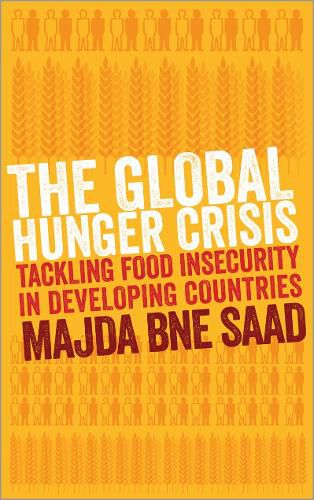Readings Newsletter
Become a Readings Member to make your shopping experience even easier.
Sign in or sign up for free!
You’re not far away from qualifying for FREE standard shipping within Australia
You’ve qualified for FREE standard shipping within Australia
The cart is loading…






For billions across the world, the daily challenge is to find enough to eat to survive. Hunger is on the rise globally with more than 1.2 billion people suffering from food insecurity and poverty and rising food prices increasingly jeopardising access to food. But what are the causes for global hunger? And as the global population soars, what are the key food challenges?
In this deeply informative study, Majda Bne Saad identifies the causes for global hunger which are embedded in the current economic system, apportioning blame for global hunger on the West’s continuing support for and subsidies to biofuels, which have created persistent and formidable new demands for food commodities. Saad proposes we fight-back, arguing for a ‘second green revolution’ to grow more food and by analysing the factors constraining low-income nations from achieving food security, she considers policies which could generate income and enhance individuals’ entitlement to food.
$9.00 standard shipping within Australia
FREE standard shipping within Australia for orders over $100.00
Express & International shipping calculated at checkout
For billions across the world, the daily challenge is to find enough to eat to survive. Hunger is on the rise globally with more than 1.2 billion people suffering from food insecurity and poverty and rising food prices increasingly jeopardising access to food. But what are the causes for global hunger? And as the global population soars, what are the key food challenges?
In this deeply informative study, Majda Bne Saad identifies the causes for global hunger which are embedded in the current economic system, apportioning blame for global hunger on the West’s continuing support for and subsidies to biofuels, which have created persistent and formidable new demands for food commodities. Saad proposes we fight-back, arguing for a ‘second green revolution’ to grow more food and by analysing the factors constraining low-income nations from achieving food security, she considers policies which could generate income and enhance individuals’ entitlement to food.